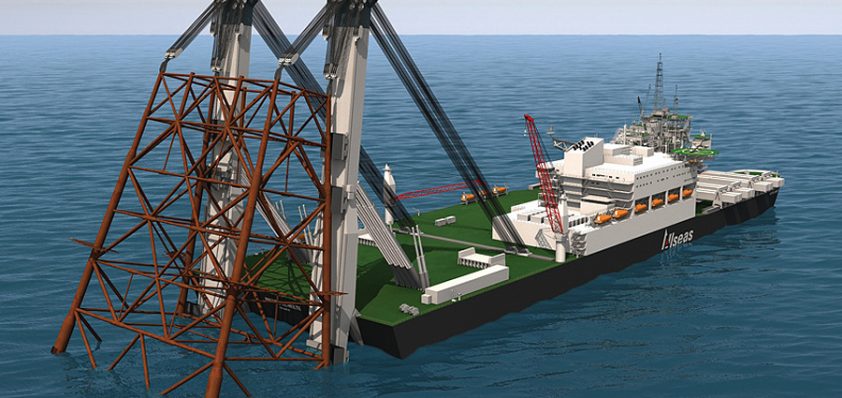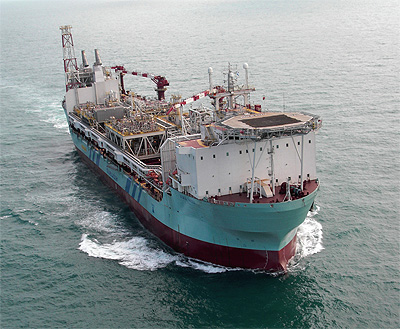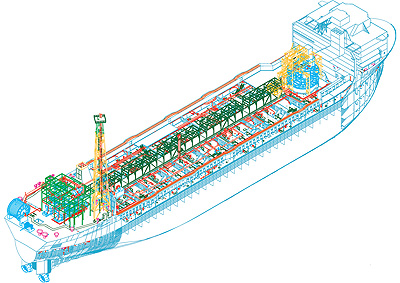
Deltamarin Group
Grand designs
The Deltamarin Group offers various services for the offshore and marine industries including design, construction management, consulting, and engineering and technical operation support.
Founded in 1990 and with references from 1984, the company is headquartered in Finland but has additional offices in Poland, Croatia, Monaco, Russia, Malaysia and China. Deltamarin has also  spent the last six years broadening its horizons through an expansion into the offshore oil and gas market as well.
spent the last six years broadening its horizons through an expansion into the offshore oil and gas market as well.
Working with globally renowned clients such as Bluewater in Holland, Petrobras and Petroserv in Brazil, as well as COOEC in China, Deltamarin’s operations in the oil and gas industry focus mainly on floating production storage and offloading vessels (FPSOs), floating production, drilling, storage and offloading vessels (FPDSOs) and floating storage and offloading units (FSOs), but also in derrick-pipelay vessels and drillships together with Ulstein Sea of Solutions (NL). Deltamarin also works closely with many Roll-on Roll-off (ro-ro) and heavy lift vessel manufacturers, as well as builders of ferries and cruise ships.
Deltamarin has recently completed the system development intended for testing of safety and redundancy of systems in case of incidents, such as flooding and fire as well as loss of system components. The method has been already applied successfully on big cruise ship and ferry new buildings. Markku Kanerva, sales and marketing director at Deltamarin, elaborates on the merits of this new system: “Through our extensive experience in 3D modelling, we have been able to introduce a new way of looking at the safety aboard the vessels. Instead of making complicated design verifications after the design has been finalised, we can now conduct it beforehand. By having detailed modelling in parametric format in the early stages, we can simulate scenarios to test the vessel’s safety features and required redundancies. For instance, we can use the programme to see what would happen if an incident were to occur, such as the flooding of compartments or the outbreak of fire – and then we can work out the best way to prevent and minimise any damage or injury.”
The programme has added bonuses throughout the whole process, according to Markku. He continues: “It can also be presented to the owner at the commissioning of the vessel to then be taken forward through to the vessel’s operations. By doing this, it can be used to ensure safety requirements are being maintained after any systems conversions are carried out, or even be applied as a tool to train the crew on any safety issues. It is now also under development for offshore industry utilisation and will be promoted at OTC in Houston in May 2009.”
Deltamarin recently won a contract from the Allseas Group to carry out the complete detail design of the Pieter Schelte project, a vessel intended for decommissioning platforms, topsides and jackets in offshore oil and gas fields. In addition, it will be equipped for pipe laying and other offshore work. The contract will involve structural engineering, naval architecture, accommodation and system engineering which will include ventilation, heating, electrical systems and air conditioning, and it will be designed using the company’s 3D modelling system. When completed, the ship will be  382 metres long, 117 metres wide and be able to accommodate 577 personnel, and it will further strengthen Deltamarin’s position in the offshore oil and gas market.
382 metres long, 117 metres wide and be able to accommodate 577 personnel, and it will further strengthen Deltamarin’s position in the offshore oil and gas market.
The company has also managed to secure a contract with the China Offshore Oil Engineering Co. Ltd (COOEC) to design a 50,000 DWT semi-submersible self-propelled heavy lift vessel (SSHLV). It will serve mainly offshore oil and gas exploration and development, and when completed, will stand at 219 metres in length, with a breadth of 42 metres and a depth of 13 metres. With a draught of ten metres, the vessel will meet all China Classification Society (CCS) regulations and all latest SOLAS and IMO requirements. This is all part of Deltamarin’s strategy to expand further into the Asian market, a move that has been recently consolidated by the opening of an office in Kuala Lumpur, Malaysia.
With a view to strengthening its presence close to home, the company has also established a new company in Poland. The aim of this move is to further expand and secure Deltamarin’s own concept development and basic engineering capacity. The choice was based on a number of factors, including the country’s reputation for a high standard of engineering education and a tradition of producing highly qualified and highly skilled engineers. Whilst starting with a small team of only three engineers and naval architects, this company in Gdansk will increase its personnel to approximately 20 in the near future.
Deltamarin’s agenda is strongly poised towards the future, and even with the current downturn, Markku believes the company is in an excellent position to remain successful. “As smaller companies are forced to shut down, the demand placed upon larger businesses such as ourselves to take a larger share of contracts will grow. In addition, there are always new rules and regulations being passed that bring new possibilities to our business – for instance, the safe return to port regulation, which is to be applied to offshore vessels with a number of people aboard, as well. Of course some rules may add restrictions, but we see these as challenges to overcome, rather than setbacks. We are always looking for new areas to expand into in order to widen our services portfolio, and so we have the best attitude for sustainability,” he concludes.
Deltamarin Group
Services: Designing and engineering for the offshore oil and gas industry